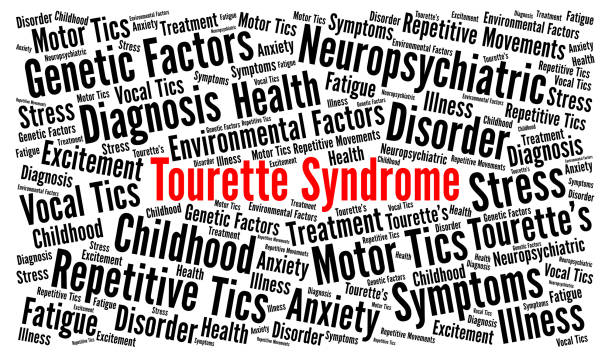
Living with Tourette Syndrome or any tic disorder can present unique challenges for both the individuals affected and their families. As a parent who has embarked on a journey with a Tourette diagnosis for my son, I quickly discovered the scarcity of effective treatment options and the frustrating lack of accessible care providers. However, amidst the struggles, I also found hope in the form of Cognitive Behavioral Intervention for Tics (CBIT). In this blog, we will delve into the world of CBIT, explore the various comorbidities associated with Tourette and tic disorders, and shed light on my personal journey.
Understanding Tourette and Tic Disorders: Tourette Syndrome is a neurodevelopmental disorder characterized by the presence of multiple motor tics and at least one vocal tic, which persist for more than a year. Tic disorders, including chronic motor tic disorder and chronic vocal tic disorder, involve the presence of either motor or vocal tics. While tics themselves can vary in severity and frequency, they often lead to significant emotional, social, and educational challenges.
The Need for Effective Treatment Providers: One of the most disheartening realizations I faced after my son’s diagnosis was the limited availability of healthcare professionals experienced in treating Tourette and tic disorders. This shortage of specialists poses a significant barrier for individuals seeking proper care, prolonging their suffering and hindering their quality of life. It became clear that more awareness, resources, and training are urgently needed in the field.
Enter Cognitive Behavioral Intervention for Tics (CBIT): Amidst the scarcity of treatment options, CBIT has emerged as a gold standard therapeutic approach for managing tics and improving the lives of individuals with Tourette and tic disorders. CBIT is a non-medication intervention based on the principles of cognitive-behavioral therapy (CBT). It focuses on increasing awareness of premonitory urges that precede tics and implementing behavioral strategies to manage and reduce tic symptoms.
CBIT in Action: CBIT comprises several key components, including tic awareness training, competing response training, and social support. Tic awareness training helps individuals recognize the sensation or feeling that typically precedes a tic, referred to as a premonitory urge. Competing response training involves learning and practicing alternative movements or actions that interfere with the occurrence of a tic. Social support, both from healthcare providers and peers, plays a crucial role in the success of CBIT.
The Impact of Comorbidities: Beyond tics, individuals with Tourette and tic disorders often experience comorbidities, which are additional medical or psychiatric conditions that coexist alongside the primary disorder. These comorbidities can include attention-deficit/hyperactivity disorder (ADHD), obsessive-compulsive disorder (OCD), anxiety disorders, depression, and learning disabilities. Understanding and addressing these comorbidities are essential for comprehensive treatment and improving overall well-being.

At Lotus Psychology Practice, I am here as your primary guide through CBIT as well as how to better manage Tourette/tics and their comorbid diagnoses. As a parent who embarked on a journey with a Tourette diagnosis for my son, I have witnessed firsthand the challenges faced by individuals with tic disorders and their families. The limited availability of treatment providers motivated me to explore alternative options, leading me to the promising world of CBIT. By promoting awareness, advocating for increased resources and training, and addressing comorbidities, we can work towards a brighter future for individuals with Tourette and tic disorders. Together, let us strive for a world where everyone affected by these conditions can access effective treatment and enjoy improved quality of life.
With deepest empathy in your resilience and empathy,
Elana Rimler, Psy.D.
